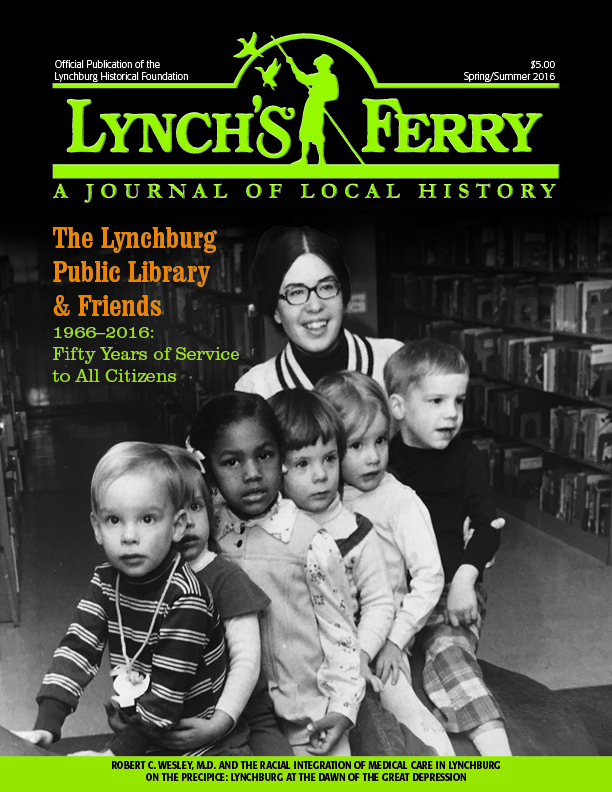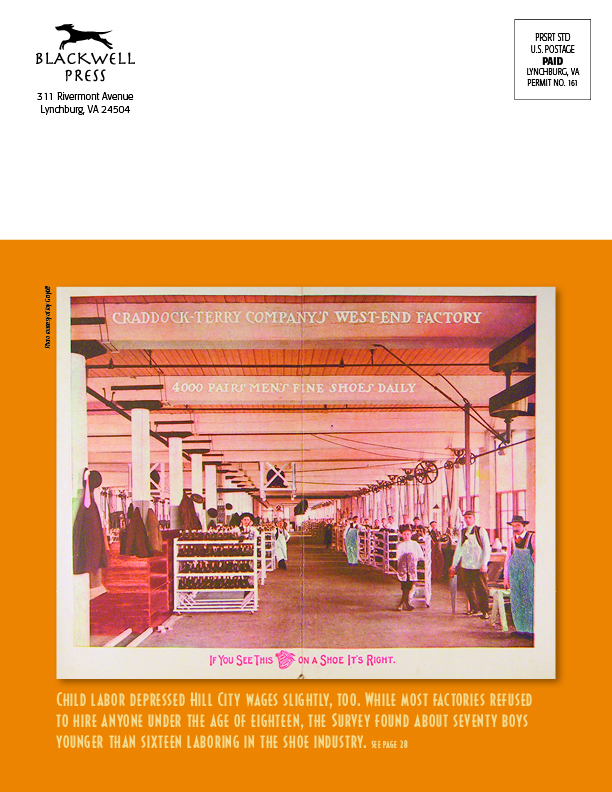Spring 2016


From the Editor
The Lynchburg Public Library, 1966-2016: Fifty Years of Service to All Citizens
The history of the Lynchburg Public Library is a story about the city at its best. Though the original “humble and hard to find” facility no longer exists, the spirit that built it persists. For fifty years— through times of social strife and financial crises—the citizens of Lynchburg have rallied to support the one place in town where “knowledge, pleasure, opportunity, and future excellence” were offered—free of charge—to the entire community. However, as every young patron learns, the library does ask for something in return. “When you went in there,” Angela Hart recalls, “it was not about what color you were. It was about whether you would be quiet!”
Robert C. Wesley, M.D. and the Racial Integration of Medical Care in Lynchburg
Classrooms, lunch counters, swimming pools—clashes over Civil Rights in Lynchburg surrounded these symbolic places, and the history of those encounters has been well documented. Now, in a tribute to the efforts of men like Dr. Robert C. Wesley and his colleagues, the author sheds light on another point of contention: hospitals. “At the same time that black physicians and their allies were advocating for full integration into the broader medical community, they were also pushing for the integration of patient care.” Their commitment to the cause—sustained despite repeated rejections, vetoes, and token measures—is a story that needs to be told.
On the Precipice: Lynchburg at the Dawn of the Great Depression
The year 1929 was filled with mixed signals. In February, Lynchburg appeared to be recovering from a “moderately deep depression.” Then, eight months later, the stock market crashed. Outside consultants commisioned by the Chamber of Commerce had put the city on alert—especially regarding average annual wages kept comparatively low through the hiring of women, blacks, and even some children. At the same time, however, employment was at an all-time high, building was booming, and factories were busy breaking previous records. “Hill City residents had reason to be confident about their future and ignore signs of trouble as they stood at the edge of a new decade.”
^ Top
Previous page: William Johns
Next page: From the editor
Site Map




